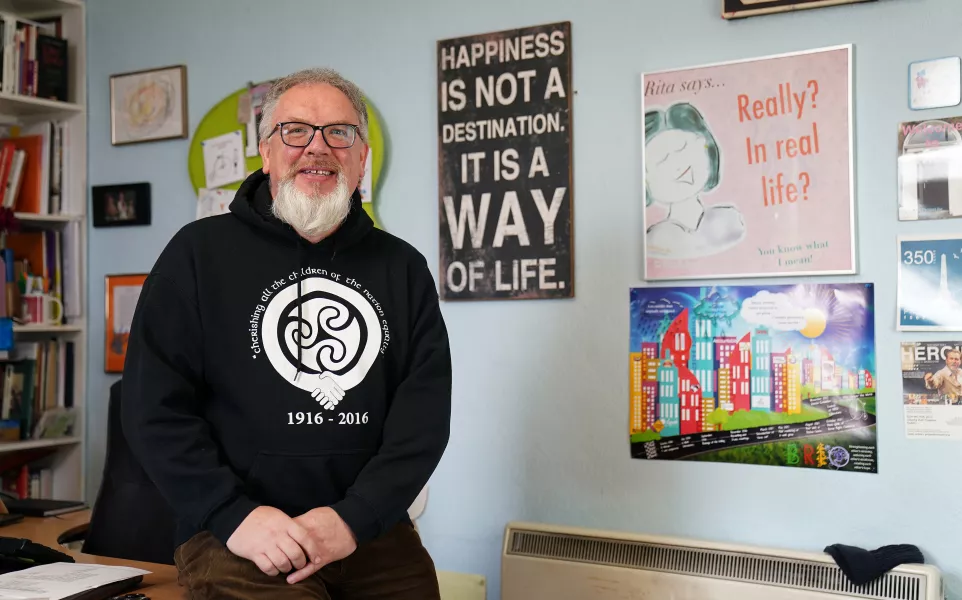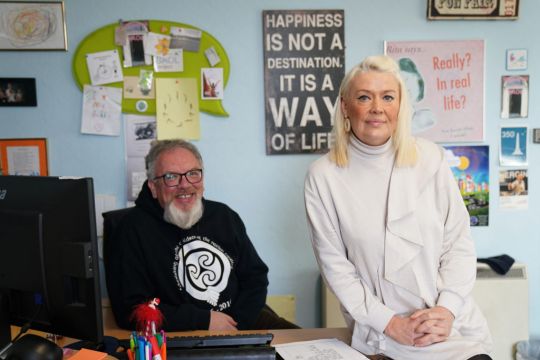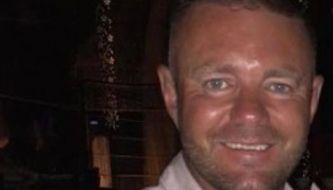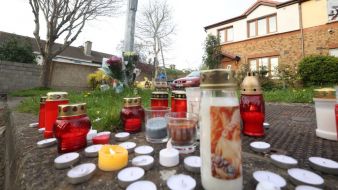Women with addiction issues face higher levels of stigma than men and do not have access to the same treatment resources, it has been claimed.
Gary Broderick, director of Saol, which works with women recovering from addiction, said research shows that the vast majority of women who have addiction issues have a background of trauma.
Mr Broderick said that trauma can include domestic violence and poverty, which often leads to drug or alcohol issues.
The Saol project is based in Dublin and helps around 250 women every year in the inner city.

More than 300 women have walked through the doors of Saol in the past 12 months.
The project was set up in 1995 after a methadone clinic was opened in the area.
It offers a wide range of services, including education programmes, community employment workshops, domestic violence programmes and a popular singing group.
Saol estimates that well over 90 per cent of women who attend its project have experienced domestic abuse and violence at some point in their lives.
“Women need different kinds of services compared to men,” Mr Broderick said.
“Research tells us that there is usually a serious background of trauma.
“When you’re working with women, it’s not just the addiction itself, it’s the trauma in the background that needs to be responded to.
“That trauma can be a whole range of things, but it includes domestic violence, it includes poverty, it includes the isolation that goes with both of those worlds.
“The stigma on women is much higher than it is on men.
“It’s not good to be a drug user, but it’s definitely not good to be a female drug user. Then, if you happen to be a mother, it’s ‘oh my God, how could you have done that to your kids?’ And that’s really the starting point. So you’ve got all of that lined up against you.”
Mr Broderick said that women who use drugs face extra difficulties because of the stigma attached to being a mother who has an addiction.
He said that some women stay away from sources of help over fears that their child or children could be removed because of their addiction.
“We imagine that there’s equality, but really there isn’t when it comes to treatments because men have the freedom to go and be professionals in recovery,” Mr Broderick added.
“They can go in, they can do the treatment, they can relapse, they can go back in again. They’re individuals doing their recovery.
“Women are not individuals, whether they have kids or not, the family is built around the woman.
“She holds things together. She brings the dog for the walk. She looks after the mother-in-law, she does all those pieces. And even if she uses substances, alcohol or drugs, she’s still doing those things as well.
“She’s still holding all those things together. She has about 15 plates flying around the place.”
Reidin Dunne, head of services at Saol, said that fathers with addiction issues do not face the same challenges as mothers.
“Women have children and women are stigmatised for being very bad mothers, but that is not the same for a father,” she added.
“A lot of our experience is that when there is a couple, he might go into treatment and be facilitated to do that. But she’s left at home minding children.
“It’s just more difficult for them, we are harder on women than we are on men, we don’t allow them to make the same mistakes.”
She added: “Patriarchy is alive and well. We really see women’s vulnerabilities in terms of their poverty, their early childhood trauma, their isolation. It’s so polarised to make them even more vulnerable.
“I think the idea of ‘we just remove the drugs from their lives and then happy days, everything is good’, but that is not at all true because the drugs are a symptom of a deeper level of pain.
“Certainly for the women coming in here, their lives are very difficult lives to lead.
“So when you do actually get underneath what’s happening for them, there are always issues of abandonment, trauma, there’s always abuse, always that child that wasn’t looked after and that’s just trauma repeating itself.
“These women try to make themselves as invisible as possible, the way they dress, the way they say sorry for themselves, the way they navigate the world is ‘don’t see me, I don’t exist. I’m invisible’.”







